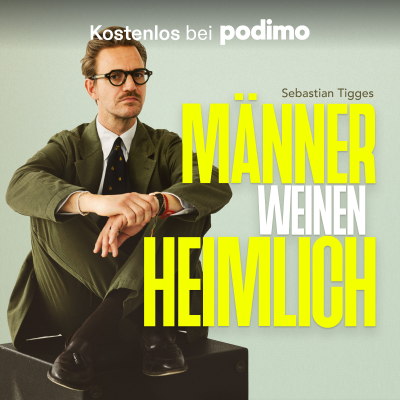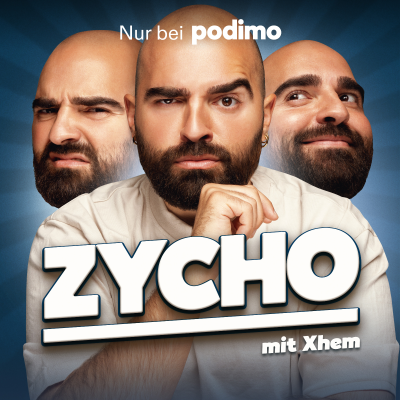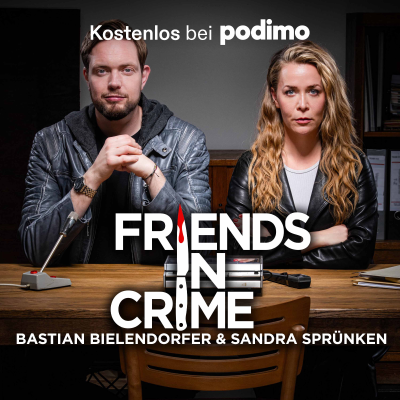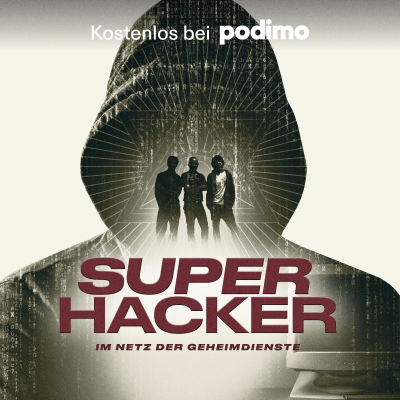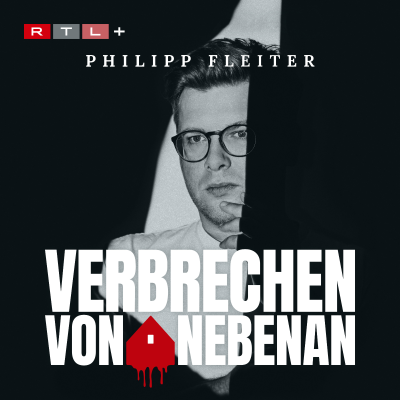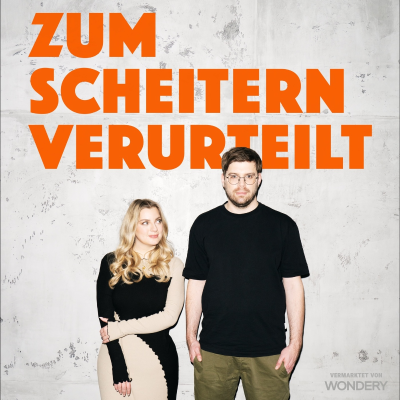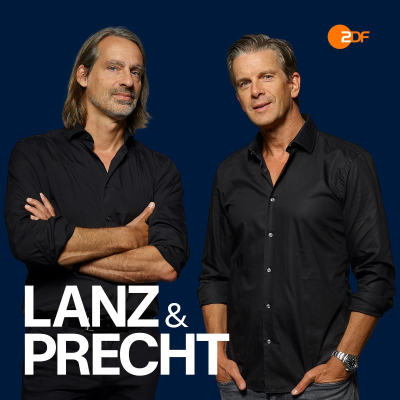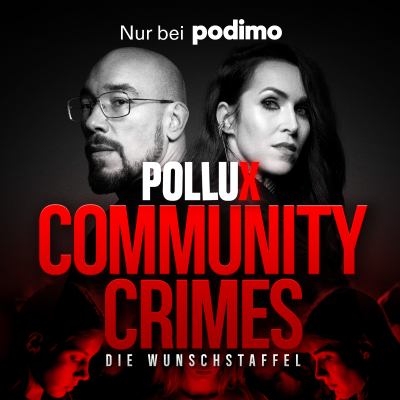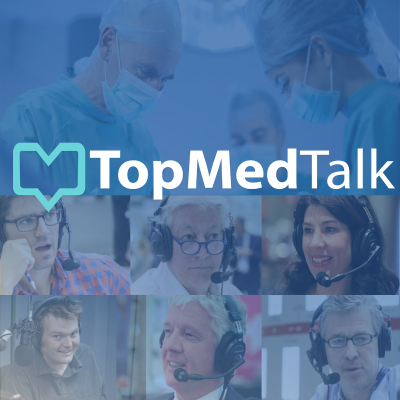
TopMedTalk
Podcast von TopMedTalk
Nimm diesen Podcast mit

Mehr als 1 Million Hörer*innen
Du wirst Podimo lieben und damit bist du nicht allein
Mit 4,7 Sternen im App Store bewertet
Alle Folgen
300 FolgenRecorded at this year's annual Evidence Based Perioperative Medicine (EBPOM) World Congress in London, this conversation deals with a crisis that modern practitioners will recognise; how do we adapt to the needs of a collectively older population? We begin by focusing upon the Australian Intergenerational Report's alarming projections about an aging population and its impact on healthcare expenditure. It's a problem mirrored by many other Western nations. The conversation covers the ARC model, a solution that shows promise in improving postoperative outcomes by offering advanced recovery room care. We also discuss the importance of addressing blood pressure, fluid management, and potential cost-effective healthcare strategies to manage the increasing elderly population requiring surgery. We conclude by emphasizing the need for comprehensive measures beyond the ARC model to tackle the emerging healthcare challenges globally. Presented by Andy Cumpstey with Guy Ludbrook, Professor of Anaesthesia at the University of Adelaide and Royal Adelaide Hospital and Esrom Leaman is a specialty trainee in anaesthetics at the Royal Adelaide Hospital and Research Fellow at the Centre for Perioperative Health Economics & Policy.
This series of talks hits upon one of the longstanding themes of TopMedTalk, opioids and opioid reduction in a perioperative setting. We discuss the opioid epidemic, the issue of persistent opioid use after surgery, and strategies for opioid reduction. Topics include historical usage, the dangers of high-dose opioids, and alternative pain management techniques such as opioid-free anesthesia and multimodal analgesia. The discussion also highlights the importance of ongoing research, patient education, and evidence-based practices to minimize the side effects of opioids while ensuring effective pain management. Presented by Tim Miller, Professor of Anesthesiology at Duke University Medical Center. Tim completed his training in Nottingham, UK followed by a fellowship in cardiothoracic anaesthesia at Glenfield Hospital, Leicester, UK. He is a fellow of the Royal College of Anaesthetists.
In this piece we look at the opioid crisis in the UK and how it has translated into clinical practice. Hear about the history and data behind opioid prescription trends, specifically highlighting the high-risk patient demographics and mortality figures associated with opioid use. Learn how a multidisciplinary approach, taken by the opioid reduction service at Guy’s & St. Thomas', helps showcase early outcome data and the strategies employed in opioid weaning. Emphasizing the importance of patient engagement and personalized care we detail the clinic’s processes, preparations, and long-term strategies for opioid tapering. The episode concludes with a compelling patient testimonial video reflecting the positive outcomes of the service. Fauzia Hasnie, Consultant Lead, Opioid Multidisciplinary Pain Management Clinic, Joint Lead, Combined Sickle-Opioid Virtual Multidisciplinary Clinic Guy’s & St Thomas’ NHS Foundation Trust. Resources: UK National Institute for Health Care Excellence (NICE) guidelines: Overview | Medicines associated with dependence or withdrawal symptoms: safe prescribing and withdrawal management for adults | Guidance | NICE [https://www.nice.org.uk/guidance/ng215] US Centers for Disease Control and Prevention (CDC): Guideline Recommendations and Guiding Principles | Overdose Prevention | CDC [https://www.cdc.gov/overdose-prevention/hcp/clinical-guidance/recommendations-and-principles.html]
This piece focuses on strategies for opioid-sparing anesthesia guided by the NOL Index, emphasizing the variability in patient responses to opioids. The importance of monitoring nociception, using advanced devices and techniques to customize opioid dosing, reduce side effects, and confirm the effectiveness of regional anesthesia. Our presenter shares personal experiences from their professional life and case studies, illustrating the benefits and challenges of implementing multimodal and opioid-free anesthesia approaches. The talk highlights the need for individualized treatment strategies in critical care and anesthesia. Presented by Esteban Salas Rezola, Specialist in Anaesthesiology, Resuscitation and Pain Therapy at Hospital General Alicante.
Euroanaesthesia 2025: the annual meeting of the European Society of Anaesthesiology and Intensive Care, in Lisbon, Portugal. TopMedTalk were there, check out our coverage on our podcast timeline. We’ve released many bonus episodes over the last few weeks! In this piece Kate Leslie and Nick Margerrison speak with their guests Sarah Saxena, course director and professor of anaesthesiology at the University of Mons, Belgium and Mia Gisselbaek, an anaesthesiologist and PhD student in medical education at University of Geneva Hospital, Switzerland. Drs Saxena and Gisselbaek were members of the working group for the ESAIC Mellin-Olsen Declaration on Diversity, Equity and Inclusion, which was signed at the opening ceremony of Euroanaesthesia 2025 in Lisbon, Portugal. The declaration can be found here: ESAIC Mellin-Olsen declaration on diversity, equity and inclusion. Eur J Anaesthesiol. 2025 May 2 [https://journals.lww.com/ejanaesthesiology/fulltext/2025/07000/esaic_mellin_olsen_declaration_on_diversity,.1.aspx]. doi: 10.1097/EJA.0000000000002186 A link to the machine learning algorithm for delirium developed by Drs Saxena and Gisselbaek can be found here https://delirium.streamlit.app [https://delirium.streamlit.app]
